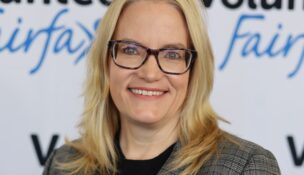Course correcting your way to a more financially secure retirement
Course correcting your way to a more financially secure retirement
Due to longer life expectancy, today’s retirees are more “time affluent” than previous generations and have new freedoms to live where they want, connect with family and friends, engage in leisure of their choosing and invest in their health. However, funding a retirement lifestyle is becoming more challenging as the old “three-legged stool” for funding retirement — Social Security, employer pensions, personal savings — is becoming wobbly.
In a new study, Merrill Lynch in partnership with Age Wave, found that achieving a financially comfortable retirement will require retirees to take more personal responsibility and overcome new challenges —starting with appreciating the cost of retirement. According to this new study, retirement will be the biggest purchase of one’s lifetime, costing 2.5 times the cost of an average home, yet 81 percent say they do not know how much money they will need to fund their plans. To better understand their finances and tackle misunderstandings, pre-retirees need to start having discussions and break down taboos around sensitive, but important financial topics.
The research also found that people are open to making money saving trade-offs, adjustments, and course corrections in order to live a more satisfying and financially secure retirement. Some of these actions include a willingness to cut back on basic expenses (90 percent of retirees indicated willingness), make healthier choices to reduce future medical expenses (91 percent), seek part time work to acquire supplemental income (75 percent), cut back on financial support to children (70 percent), downsize their home (75 percent) and volunteer time in lieu of gifting money to charitable organizations (75 percent).
Here in the mid-Atlantic region, we find:
Retirees report the lowest percentage of retirement funding from employer-related sources (pension, qualified plans, etc.).
Respondents were the most likely to collect Social Security payments as early as possible.
Retirees are among the most likely to turn a retirement hobby into a source of income, or supplement income with the gig economy
Overall, course corrections vary based on individual priorities and values — so it’s important for retirees to consider the vast array of options available to them. The good news is that retirees and pre-retirees are extremely resilient, adaptable, and hopeful. Many are open to making meaningful adjustments across all life priorities for a more financially comfortable retirement.
These topics may be intimidating, but it’s important to remember that you are not alone in this endeavor to achieve financial wellness in retirement. Speaking with a financial advisor can help you make sense of not only retirement, but all of your financial life priorities. Whether it’s buying your first home, paying for college, planning a wedding or any other life-changing financial decision — having a financial advisor to help you build a comprehensive financial plan based on your life’s goals, is essential to achieving the post-retirement lifestyle that you may have always dreamed of.
For more information on the Merrill Lynch study, contact William J. Moran, Jr., Chartered Retirement Planning Counselor (CRPC®), senior vice president and wealth management advisor with Merrill Lynch at 202-659-7340 or [email protected].
To download the “Finances in Retirement: New Challenges, New Solutions” study and interactive graphics, visit www.ml.com/retirementstudy. This report is based on a nationally representative survey of 4,854 respondents age 25 or more and is the capstone study of a series of in-depth studies focusing on seven life priorities, including an initial benchmark study. To explore additional content and resources related to these seven life priorities, visit www.ml.com/retire.
Neither Merrill Lynch nor any of its affiliates or financial advisors provide legal, tax or accounting advice. You should consult your legal and/or tax advisors before making any financial decisions.
-
















